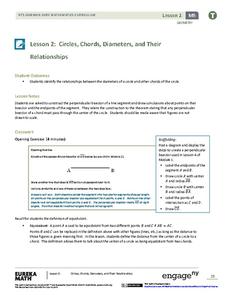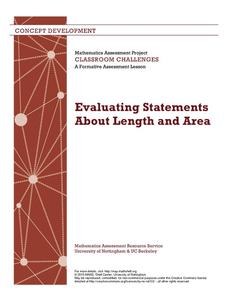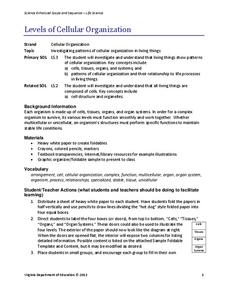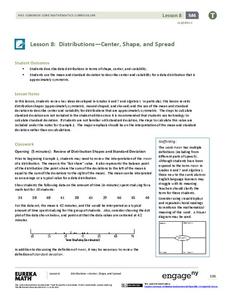Curated OER
Mount Rushmore
How did those faces get on that mountain, and why did they choose those particular presidents? Learn about Mount Rushmore's construction and the history behind the men represented on the mountainside with a short reading passage and set...
Houghton Mifflin Harcourt
Unit 1 Math Vocabulary Cards (Grade 4)
Use a set of 12 math vocabulary cards intended for fourth grade mathematicians. The topics of the cards include mostly place value concepts. Each sheet contains two cards; one with the word printed in bold text, and the other with the...
K12 Reader
Booker T. Washington: Up From Slavery
Read Booker T. Washington's inspiring story about arriving at his name with a short reading passage from his autobiography, Up From Slavery. After class members read the excerpt, they answer two reading comprehension questions about the...
Michigan Technological University
Giant Mirrors
Did you know some retailers use curved mirrors in their fitting rooms to make customers look thinner? Pupils view themselves in convex and concave mirrors to understand the difference. The resource includes big ideas for multiple age...
Arkansas Government
Creative Adventures with Literature - Whoever You Are
Celebrate our similarities and differences through multiple readings of Whoever you Are by Mem Fox. Readings are accompanied by a grand discussion, charts, creative art, dramatic, and music play to reinforce the uniqueness that is found...
Curated OER
Prejudice and Discrimination
How do we break the habit of prejudice? The activities in this packet are designed to promote awareness, harmony, and acceptance. Participants identify their stereotypic beliefs, attitudes, and behaviors, reflect to discover the sources...
EngageNY
Circles, Chords, Diameters, and Their Relationships
A diameter is the longest chord possible, but that's not the only relationship between chords and diameters! Young geometry pupils construct perpendicular bisectors of chords to develop a conjecture about the relationships between chords...
EngageNY
Inscribed Angle Theorem and Its Applications
Inscribed angles are central to the lesson. Young mathematicians build upon concepts learned in the previous lesson and formalize the Inscribed Angle Theorem relating inscribed and central angles. The lesson then guides learners to prove...
Mathematics Assessment Project
Cross Totals
Finally, it all adds up. Learners complete a number puzzle in which they investigate the sums of the digits one through nine in a cross pattern. They then try to determine what totals are possible and which ones are not before devising a...
Mathematics Assessment Project
Evaluating Statements about Probability
Learners first complete an assessment task where they assess statements on probability. They then sort cards containing probability statements as being either true or false.
Mathematics Assessment Project
Evaluating Statements About Length and Area
Class members complete an assessment task by identifying whether statements about triangles and quadrilaterals are always true, sometimes true, or never true. They then participate in a sorting activity with the same objective.
Willow Tree
Percents
We see percents everywhere! Building a solid understanding of their meaning is important to future mathematics, but also as citizens. Young scholars practice rewriting decimals, percents, and fractions. They also determine percents of a...
Virginia Department of Education
Levels of Cellular Organization
What an eccentric way to learn about each level of cellular organization! Allow emerging biologists to utilize white paper and create their own foldable charts to describe each level of organization in the body. You may also adapt the...
Willow Tree
Bar Graphs
Circles, lines, dots, boxes: graphs come in all shapes in sizes. Scholars learn how to make a bar graph using univariate data. They also analyze data using those bar graphs.
EngageNY
Distributions—Center, Shape, and Spread
Data starts to tell a story when it takes shape. Learners describe skewed and symmetric data. They then use the graphs to estimate mean and standard deviation.
Mathematics Assessment Project
Ratios and Proportional Relationships
Time to see what they've learned. Seventh graders solve a set of seven short problems in the ratios and proportional relationships domain. Applications include photo negatives, washing machines, coffee powder, sleep, stamps, etc.
Other popular searches
- Equal Rights Amendment
- Equal Rights for Children
- Social Studies Equal Rights
- Equal Rights Movements
- Equal Rights Coloring Sheets
- Equal Rights Latino
- Equal Rights for Men?
- Equal Rights Scrapbook
- Equal Rights. Government
- Women's Equal Rights
- Equal Rights Government
- Equal Rights for Men\?

















